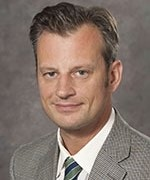The Health Data Science and Systems Research and Learning Cluster will meet virtually October 2, 2020 at 10:30 am. Dr. Sean Peisert will present a talk titled, “Scientific Computing and Sensitive Data.”
Computing has had a role in scientific research for decades, and continues to play an increasingly important role with ever-increasing amounts of data that is used in science. But scientific computing is not the same thing as IT or commodity computing and over the decades, we’ve learned a lot about how to do scientific computing right from tools like scipy and numpy and Jupyter to supercomputing systems.
Today, increasingly, there are also numerous categories of academic research that have data confidentiality requirements, from research that is simply embargoed until a future publication date to research that contains industry-owned proprietary information or is subject to government regulation.
This talk discusses challenges to research computing with data that is in some way sensitive, with an emphasis on protected health information, and solutions that are being used or could be used to address those challenges and enable the research to take place. Those solutions include technical solutions that address security, performance, and usability needs, as well as procedural issues. Finally, we briefly touch upon open research areas in security and privacy in scientific computing.
The presentation will be followed by a question and answer period, followed by strategic planning for future cluster activities. Please visit the cluster’s webpage for information on how to sign-up for the cluster and receive Zoom login information for the meeting.
Dr. Sean Peisert leads computer security research and development at Lawrence Berkeley National Laboratory. He is also chief cybersecurity strategist for CENIC and is both an associate adjunct professor of Computer Science at the University of California, Davis and of Health Informatics at the University of California, Davis School of Medicine. Professor Peisert was also recently appointed editor-in-chief of IEEE Security & Privacy. He received his Ph.D., Masters, and Bachelors degrees in Computer Science from UC San Diego.



